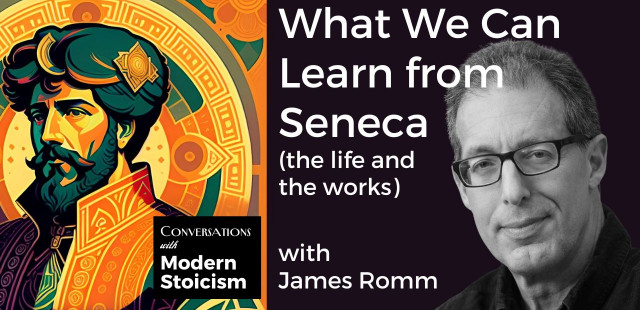My Stand-up Success Secret: The Dichotomy of Control
by Michael Connell
Before I tell you a bit of my story, here is my new new comedy special. As you can guess from the title, it uses and applies Stoic philosophy in a stand-up comedy context.
[youtube https://www.youtube.com/watch?v=jPeavDDlJpM]
And now that you’ve seen that, here’s my story:
When I was getting started in stand up, I got to do some gigs with a guy called Dave who was not only a great comedian but (I realised later) was kind of a philosopher.
I’d probably only done a show or two at this point, but Dave was a seasoned veteran. In fact he was something of a legend of Australian comedy, and even though I was so new I’d heard he was something of a stand up genius.
Not wanting to miss this opportunity, when we were backstage waiting for the show to start, I asked if he had any tips. What advice could he give to a newbie like me just starting out in comedy?
“Everything’s your fault” said Dave.
I was sort of shocked and sat there stammering and wondering what I’d done wrong. Here I was, two or three gigs into my comedy career and all ready I’d somehow ruined everything. Seeing that I really didn’t get what he was trying to tell me Dave explained. “Whatever happens it’s on you. If you want to get anywhere you have to accept that it’s your fault, even when it’s not your fault.”
It’s my fault even when it’s not my fault? This was the weirdest thing I’d ever heard.
Dave tried to explain what he was saying by giving me this example; imagine you go out onstage, tell a joke and no one laughs. Whose fault is that?
Is it the audience’s fault? Were they too dumb to get what your joke was about? Were they not interested in watching the show? Well, that might be true. However if that’s the way you see things then there’s nothing you can do.
You can’t make the audience smarter so they get your material. You can’t force them to be polite and pay attention. If you decide that not getting a laugh is the audience’s fault all you can do is try and find another, smarter, audience.
If you decide the reason the joke didn’t get a laugh is your fault though, you have a lot of options. You can write more accessible material, explain the set-up better, practice your performance so you can grab their attention, and so on.
It’s your fault, even when it’s not your fault.
This theory, said Dave, applied to everything in your comedy career. Even offstage. If you got onstage and the mic was faulty, that was because you hadn’t checked it. If you showed up to a venue and the audience was seated badly, it was your job to move them.
Even if the set-up for the night would make doing a comedy show impossible (the promoter wants you to perform to the Klan while hanging over a pit of crocodiles), a bad gig is still your fault because you failed to find out what they had planned and pull out before the gig started.
Other comedians would often joke about Dave’s habit of turning up early to gigs and adjusting lights and moving chairs. He always killed though, and was an amazing performer. According to Dave having the right mindset was what separated successful comedians from the rest.
Comedians who took responsibility for their successes, failures and everything else that happened to them learnt and improved and eventually became good acts. Performers who didn’t accept this responsibility, waited around for something to happen, blamed someone or something outside them when it didn’t, and then eventually quit.
I always thought this was great advice and tried to live by it through my comedy career. Sometimes I’d try and tell other comedians, but they’d never really get it because I never knew how to explain this concept as well as Dave had put it to me.
“It’s always your fault” I’d say, and they’d reply that I was being ridiculous. How could I expect them to be responsible for everything? That’s not fair.
All I could say was that it worked for me.
And it really did. Even though I’ve never had any huge breaks, I’ve done quite well and managed to make a decent living for the last ten years or so. I’ve also felt happier and more in control than a lot of comedians I’ve worked with – at least they seemed a lot more angry, bitter or frustrated than I usually feel.
Mostly, I’ve put this down to Dave’s little “everything’s your fault” tip. Unlike a lot of other comedians who felt frustrated by some gatekeeper, I’ve usually managed to work around these obstacles and push ahead. If I wasn’t getting booked at enough comedy gigs I’d organise my own shows.
When audiences didn’t laugh at a bit I’d rewrite the material until they did instead of just writing them off as dumb. When I couldn’t afford to hire a graphic designer I taught myself photoshop and made my own posters.
I found I also started using Dave’s tip in situations that had nothing to do with comedy. I remember getting into a fight with a girl and thinking “How is this my fault? What can I do to fix this?” Acting as if everything was my fault (even if it arguably wasn’t) really improved my life.
Turns out Dave wasn’t the first person to think of this. About ten years after Dave shared his little bit of wisdom with me, I read a book on philosophy called A Guide to the Good Life. This book was all about Stoicism, which is (I learnt) a form of ancient Greek and later Roman philosophy.
As I learnt about Stoicism I of course came across this quote by Epictetus:
“Some things are in our control and others not.”
I was shocked. Here was Dave’s idea being espoused by an ancient Greek philosopher. What Dave had explained to me all those years ago was pretty much Epictetus’ Dichotomy of Control. Just like Epictetus, Dave had argued that you should focus on the things you could control.
When faced with a problem you should look for what aspects of the situation you control by asking yourself “how is this my fault?”. Once you figure that part out you can start making changes to overcome whatever obstacle you’re facing.
Dave might not have explained the dichotomy as eloquently as Epictetus – the word “fault” is a bit accusatory – but his simple advice helped me deal with the many obstacles that come with a comedy career.
And the more I read about Stoicism, from its’ radical sense of responsibility to its’ concept of finding success through self mastery, the more I saw parallels with Dave’s ideas. Discovering this philosophy was called Stoicism, not Dave-ism, was quite a surprise. It was a weird feeling realising I’d sort of been following a system of philosophy I’d never heard about.
I never got to find out where Dave got his philosophy from. Unfortunately, I stumbled on to Stoicism several years after Dave had passed away.
There’s a lot of places he could have got his ideas from. Key ideas from Stoicism are also shared by Buddhist, Taoist and early Christian thought, and Stoic themes popping up in TV, film, books, and media from time. It’s possible that he read it in a book or saw something on TV.
However, my guess is that Dave learnt this philosophy from the school of hard knocks. The harsh nature of the comedy industry forcing him to come up with a way to manage and focus his energy.
Intense pressure often leads people towards developing Stoic outlooks. Prisoners, mountain climbers, and soldiers often express Stoic-ish ideas. Maybe the challenges of being a comedian force you to look at the world in a somewhat Stoic way?
Wherever Dave got his idea from it certainly helped me in my career and I’m sure it influenced my general world view too (although I didn’t realise it at the time).
Fast forward 10 years later and Stoicism’s influence on my comedy continues to grow. My latest comedy special uses core Stoic concepts to poke fun at our irrational responses to life’s ups and downs.
A lot of obstacles had to be overcome to create a comedy special like this, and now I’m facing the biggest one: releasing it online for the world to see.
How will people respond?
I hope they’ll like it, but that’s beyond my control.
Neither Dave nor the Stoics claimed that philosophy will get you everything you want – fame and fortune might never come no matter what you do – and are probably not worth pursuing anyway.
However if you focus on what you can control, you have have the peace of mind that comes from being the best you can be.
That’s what I’m aiming for.
Michael Connell is a comedian, and MC, and a longstanding student of Stoic philosophy. You can watch his new stand up special, and find out all about his comedy and biography, on his website: MichaelConnell.com.au





I saw the stand up last week and it was brilliant, I really enjoyed it, I’ve also really enjoyed reading this, it really “clicked” with me , thank you for sharing it. By the way did you design the green shirt?
Best regards.
We need a Stoa where we can muse and pontificate.
[…] worse, as it always does – actually, it’s my fault for not bookmarking the website). Here is something similar that I […]